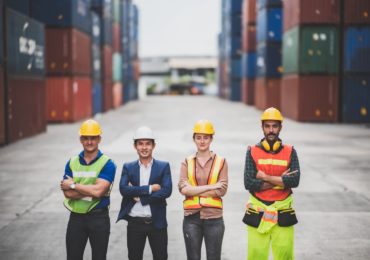Read Time: 4 min.
When we think about sustainable development, we don’t always think of it within the context of logistics. However, its principles can certainly be applied to improve and assure the future of the industry.
Defined more precisely, sustainable development indicates a progression that considers the needs of the present without preventing future stakeholders from achieving their goals. In other words, we architect the present with the understanding that plans must be dynamic, considering the needs of the future and making educated assumptions on what they might be, based on current trends.
Building a Sustainable Supply Chain
In today’s logistics, we are concerned with space, waste, energy consumption, and cost-efficiency. These are all trends that carry forward—although we need to consider that future solutions might be better than what we have now.
Here are some of the ways forward-thinking 3PLs are supporting sustainable development:
1. Route Optimization. Route optimization allows us to make the most of available space, ensuring that containers are filled and reducing the number of vehicles on the road. This practice also helps shipments arrive faster and more reliably, helping reduce costs for both shippers and carriers. A transport management system (TMS) helps 3PLs reduce costs, mileage, and CO2 emissions and might reduce the number of trucks on the road altogether. A TMS also makes the process more efficient, reducing returns, claims, and customer service issues.
2. Choosing the Right Means of Transport. Choosing the right mode of transport is critical to sustainable development. We must consider what the cargo is, where it’s going, and how quickly it needs to get there. Depending on the available routes, it might be advantageous to use multiple modes, but each shipment must be considered on its own merit—in other words, there is no one-size-fits-all solution for all shippers or types of cargo. Choosing the correct mode is vital to ensure economy and maximize
How can DTS become a growth lever for your business?

3. Improving Packaging and Storage Efficiencies. Automation is a crucial factor when it comes to packaging optimization. It maximizes space usage in both the warehouse and the vehicle, minimizes waste and breakage, and enables last-mile delivery to shorten ship times. Technology plays a key role in space optimization as well, helping to make the most out of warehouse and vehicle capacities.
4. Controlling Environmental Impact. Today there are many areas of environmental concern in logistics. There is a trend toward automated and electric vehicles, but it will be some time before we see enough implementation to make a measurable difference. Ocean traffic has proven harmful to marine life as well. As domestic supply chains ramp up in the wake of COVID, scientists have noted significant improvements directly related to reduced traffic on the sea. Maintaining and improving these numbers are of critical importance to the future of our species as well, so optimizing loads, reducing empty cargo space, and applying technology to support these activities will continue to be a primary concern.
In conclusion, sustainable development in logistics ensures growth in our industry and enables a healthy future for our planet and everybody in it. DTS World Cargo supports a sustainable philosophy and continually strives to implement improvements that support a greener future. Reach out today to learn more about how we can help you grow.




